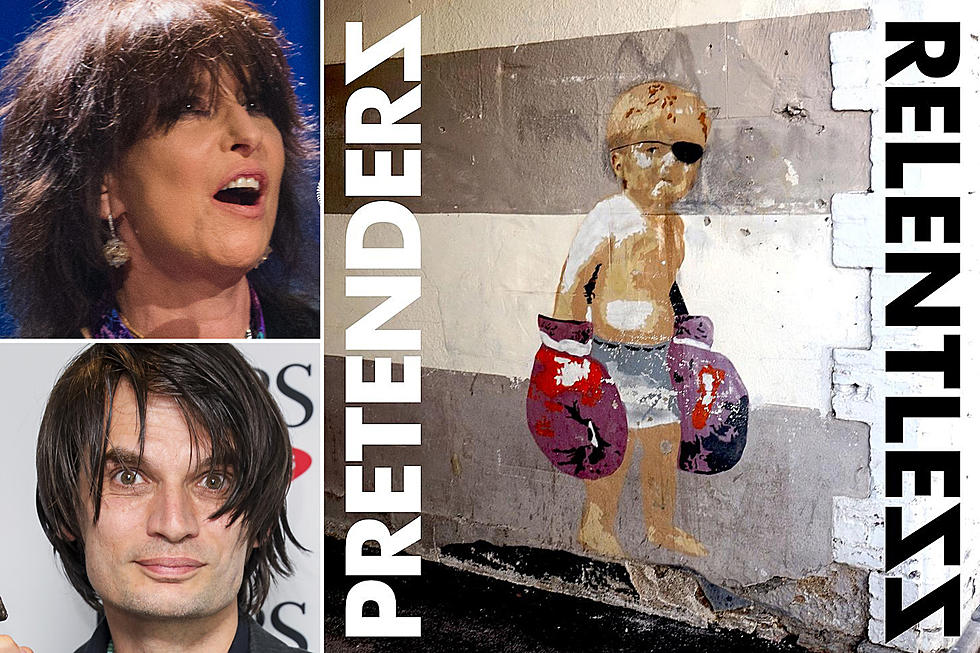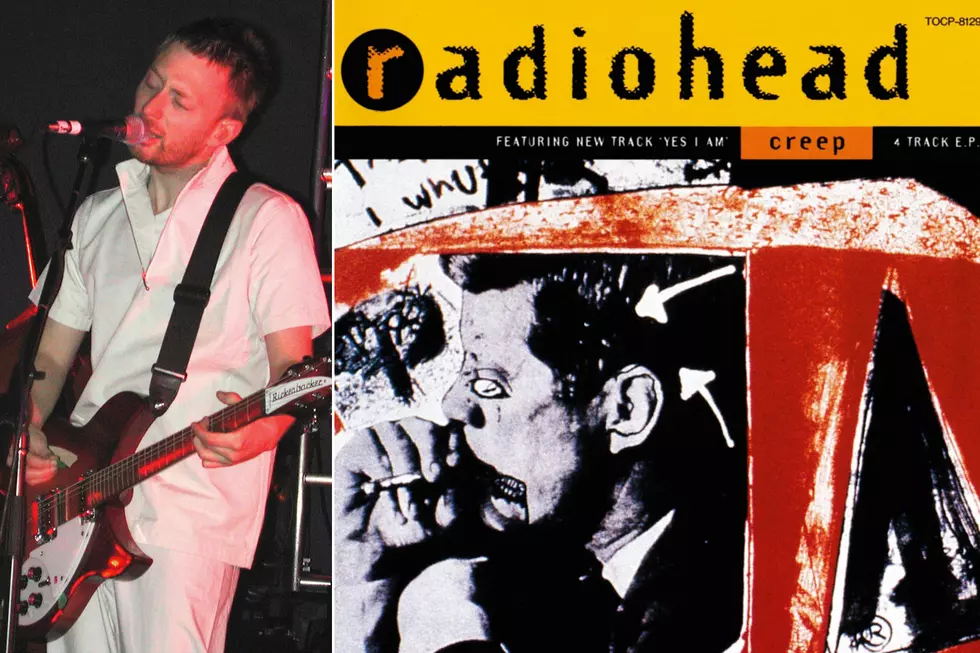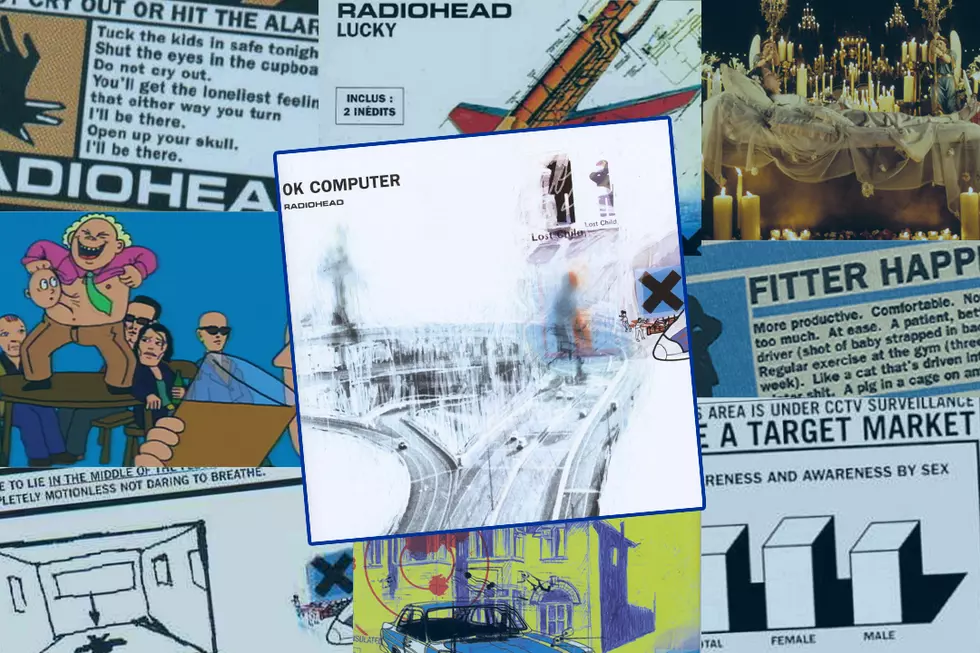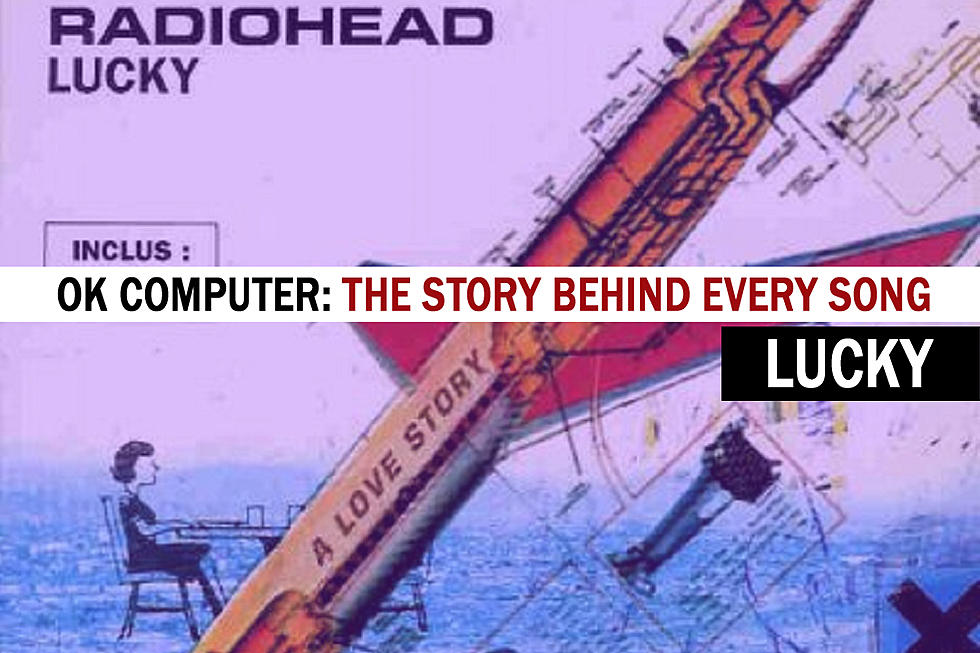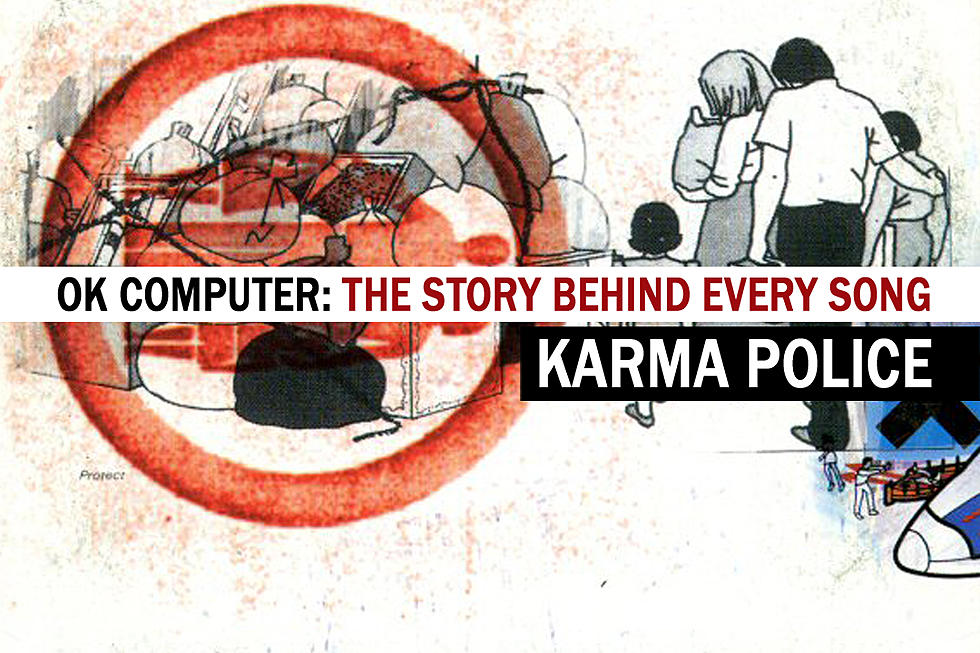
25 Years Ago: The ‘Karma Police’ Catch Up With Radiohead
In the ’90s, eastern religions and alternative rock became intertwined. The decade’s defining band named themselves after Buddhism’s ultimate goal, alternative rock’s coolest artists (including Radiohead) participated in the Tibetan Freedom Concerts and many a Lollapalooza vendor wrote “karma” on their tip jars.
Radiohead singer Thom Yorke became interested in Buddhism and began to “dabble” in the religion, although that’s hardly the inspiration for “Karma Police,” OK Computer’s sixth track and second single. Rather, the spooky ballad was the result of an inside joke that dated back a couple of years.
“It was a band catch phrase for a while on tour – whenever someone was behaving in a particular s---ty way, we’d say, ‘The karma police will catch up with him sooner or later’,” guitarist Jonny Greenwood told Melody Maker. “You have to rely on something like that, even though we’re probably just kidding ourselves. But it’s not a revenge thing, just about being happy with your own behavior.”
According to Yorke, the band’s other guitarist Ed O’Brien was the one who suggested building a song around the phrase “Karma Police.” The singer ran with the idea, creating a sort of 1984-esque atmosphere in which citizens rat out each other for personal slights. For instance, the first man upon whom the narrator shines his spotlight is arrested because he “buzzes like a fridge.” This annoying background hum of technology connects the song to OK Computer’s stance against the onslaught of modern noise.
Of course, “Karma Police” isn’t shy about employing its own noise, although that comes after the song begins with acoustic instruments – a strummed guitar, a mournful piano and steady drums. In its early moments, the tune tips its hat to the Beatles’ “Sexy Sadie” (another song partially influenced by “The White Album” after “Happiness is a Warm Gun” helped inspire “Paranoid Android”).
Watch Radiohead's 'Karma Police' Video
The “Sexy Sadie” connection goes beyond Radiohead’s status as Beatles fans. That song, like “Karma Police” also has a tie to eastern religion. John Lennon composed it in India, while being the guest of Maharishi Mahesh Yogi. Lennon had gradually becoming disenchanted with the man as a spiritual leader, seeing that the man had other goals than merely spiritual enlightenment. He planned to name the song “Maharishi,” but George Harrison convinced him to change the title because of the scathing lyrics (“you made a fool of everyone”).
And so, “Sexy Sadie” and “Karma Police” share more than some chords and an aesthetic – both songs are about people employing eastern religions to serve their own selfish reasons. But “Karma Police”’s story seems much more sinister, with the organization issuing threat after threat (“This is what you’ll get if you mess with us”) and even cannibalizing its non-productive members (“I’ve given all I can but we’re still on the payroll”).
“This is really schizophrenic, isn’t it?” Yorke told Select in 1997. “There’s that huge personality change halfway through.”
As the song progresses, it gets darker and stranger, swinging by to pick up the same haunted choir from earlier OK Computer track “Exit Music (For a Film)” and reveling in could insouciance from Yorke (“Phew, for a minute there, I lost myself”). It concludes with a burst of fragmented, ferocious noise. The effect was achieved by O’Brien, who played a few notes on his guitar, then distorted them by overloading a digital delay unit. The studio trickery gave “Karma Police” its violent finale.
Watch Radiohead Perform 'Karma Police'
Radiohead debuted the song on tour in 1996, a little less than a year before they released OK Computer. While frontman Yorke would often play up the song’s dark humor in interviews, reminding fans not to take the song too seriously as a commentary on society, it’s clear that he didn’t consider “Karma Police” a complete joke.
“Karma is important,” Yorke admitted to Humo. “The idea that something like karma exists makes me happy. It makes me smile. ‘Karma Police’ is dedicated to everyone who works for a big firm. It’s a song against bosses.”
In the summer of 1997, following OK Computer’s spring release, Radiohead told their “bosses” at EMI that they’d selected “Karma Police” as the album’s second single. Released on August 25, 1997, the song became the band’s fourth top 10 hit in the U.K. (rising to No. 8) and the only single to make any impact on the U.S. charts (going to No. 14 on the Alternative Rock chart). As with lead single “Paranoid Android,” the music video for “Karma Police” had a massive effect on the tune’s popularity, in all parts of the world.
Radiohead originally planned to make a video for every cut on the album, before scrapping that approach to do the more typical “singles only” thing. The clip for “Karma Police” was directed by Jonathan Glazer, who had collaborated with the band previously on The Bends single “Street Spirit (Fade Out).” The ominous video, which seems perfectly suited to the music, was originally conceived for another song.
Prior to working on “Karma Police,” Glazer had been tapped by Marilyn Manson to helm the video for “Long Hard Road Out of Hell.” The shock rocker asked the director to watch David Lynch’s “Lost Highway” for inspiration. But when Glazer presented his vision of an old car chasing a man down a desolate road under the cover of darkness, Manson wasn’t impressed and decided on another approach.
When Radiohead approached Glazer on working together once more, he revived the idea, which the guys in Radiohead thought was perfect. The video, which certainly recalled the look of “Lost Highway” as well as the Coen Brothers’ “Blood Simple,” also featured a sleepy Thom Yorke, issuing his shrugged-off threats from the backseat of a 1976 Chrysler New Yorker. The video became a big hit everywhere with an MTV channel, although Glazer wasn’t satisfied with the result.
“I regard ‘Karma Police’ as a complete failure, because I decided to do a very minimalist, subjective use of camera,” Glazer told Indie Wire, “and tried to do something hypnotic and dramatic from one perspective, and it was very hard to achieve and I feel that I didn’t achieve it.”
Just about everyone, including the members of Radiohead, respectfully disagreed. In fact, because of his work on “Karma Police” (and Jamiroquai’s “Virtual Insanity”), Glazer was named MTV’s Director of the Year. Perhaps, this is what you’ll get when you mess with Radiohead.
Radiohead Albums Ranked
More From Ultimate Classic Rock
